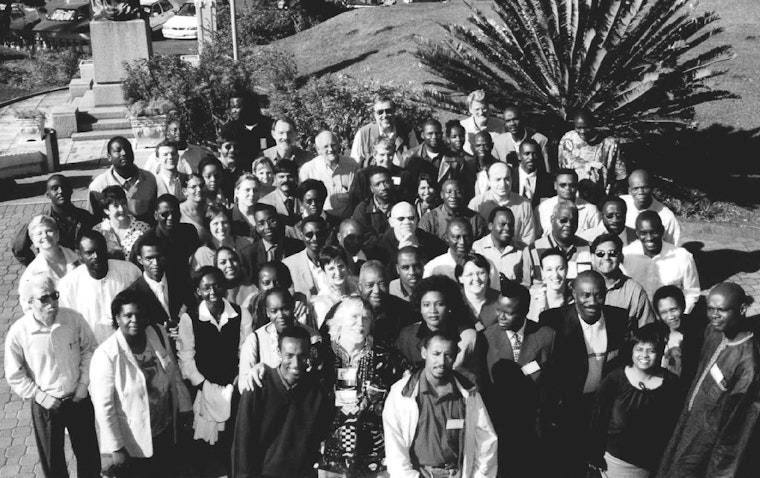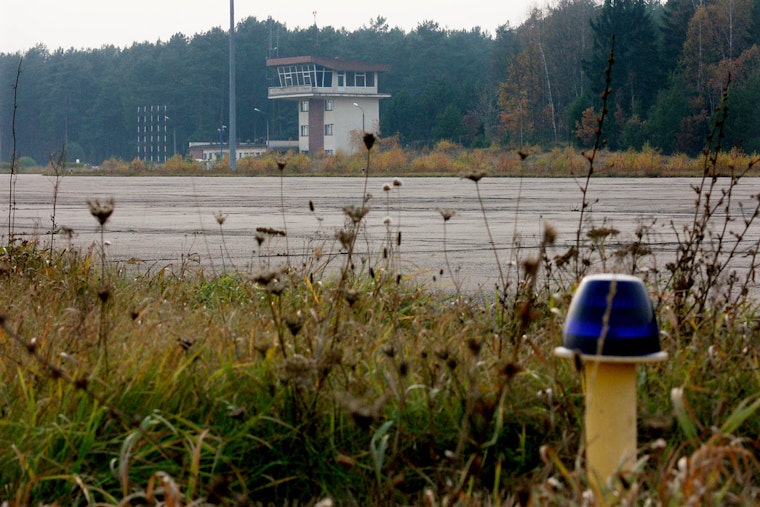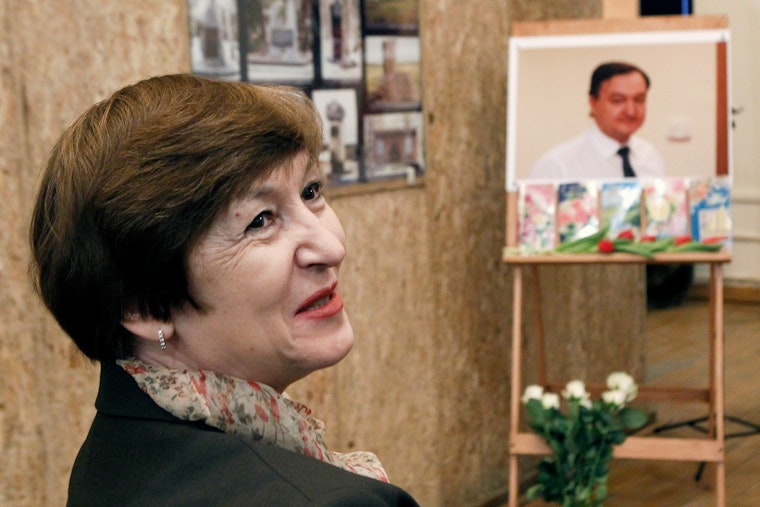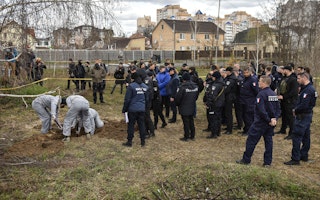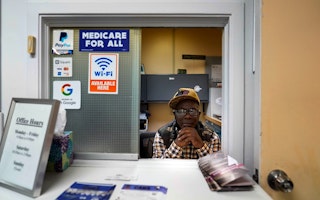Using the Law to Advance Open Society: A Timeline

In 2003, the Open Society Justice Initiative was launched within the Open Society Foundations by the Foundations’ then-president Aryeh Neier, a co-founder of Human Rights Watch, to advance the organization’s mission through human rights litigation, advocacy, and legal empowerment. James A. Goldston was named the Justice Initiative’s founding executive director and has led the initiative ever since.
Lessons of the past decades have proven that the defense of human rights has been, time and time again, a bulwark against government wrongdoing, corporate irresponsibility, and attacks against the world’s vulnerable populations. Today, the Justice Initiative is focused on using the law to support Open Society’s work around the globe and making inroads into climate justice, digital rights and fair elections, racial justice and antidiscrimination, and accountability for international crimes.
2003: Initiating Clinical Legal Education
Beginning in 2003 and for over a decade, the Justice Initiative introduced clinical legal education at universities in more than three dozen countries, including Afghanistan, Cambodia, Egypt, Indonesia, Italy, Mongolia, Mozambique, and Turkey. For many of these universities, it was the first time they had ever been able to offer such legal training. Many of these clinics continue to provide needed legal services and inspire law students and graduates to dedicate their time and skills to public interest law.
2004: Protecting the Rights of Pretrial Detainees in Nigeria
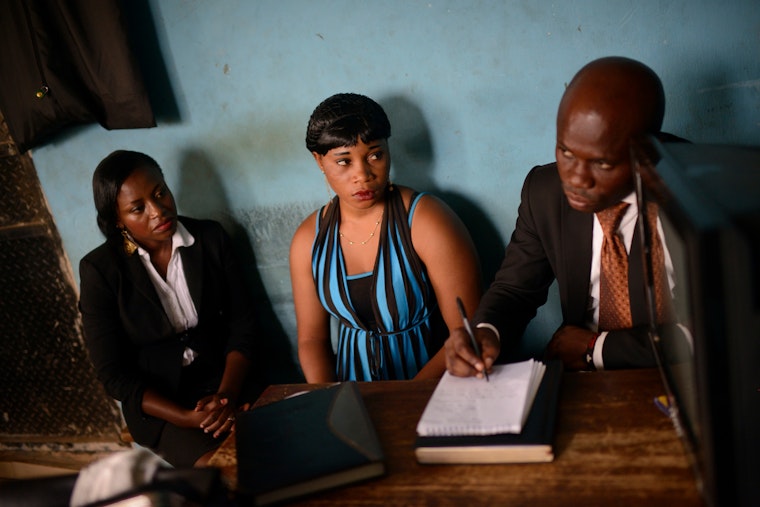
The Nigerian Legal Aid Council and the Justice Initiative created a police duty solicitor project to address rights violations faced by pretrial detainees in Nigeria, where people were often detained without proper records documenting their arrest or charges. The following year, Nigerian lawyers began visiting detainees held in police stations to offer free legal advice within 48 hours of arrest. Over the next several years, 15,000 suspects were successfully kept out of, and/or released from, unnecessary pretrial detention.
2005: Advancing the Independence of the Media in Romania

Romania adopted reforms to increase the transparency of public procurement in advertising, in a measure that bolstered media independence in the country, where public advertising contributes significantly to media revenue. These changes were developed in consultation with the Justice Initiative and the Center for Independent Journalism, which together documented the scope of financial censorship practices and proposed recommendations.
2005: Securing the Release of a Prominent Journalist in Angola

Angolan journalist Rafael Marques de Morais, represented by the Justice Initiative and INTERIGHTS, received a favorable ruling from the United Nations Human Rights Committee, which found that Angola violated his freedom of expression by imprisoning him in 1999 for criticizing the country’s president, José Eduardo dos Santos.
2005: Ending Charles Taylor’s Safe Haven
The Justice Initiative built a lawsuit by two war crimes victims challenging the purported granting of safe country status in Nigeria to former Liberian president Charles Taylor, who had been charged with war crimes and crimes against humanity by the UN-backed Special Court for Sierra Leone. Once a High Court judge ruled that the case would go to trial, the Nigerian government facilitated Taylor’s handover to the Special Court, which subsequently convicted and sentenced him to 50 years in prison.
2006: Pioneering Legal Empowerment

The Justice Initiative partnered with Sierra Leone’s Timap for Justice in designing more accessible legal assistance to rural populations in Sierra Leone and modeling innovations for justice services delivery through community-based paralegals. These practices would be widely embraced in subsequent years by an emerging global movement for legal empowerment.
2007: Challenging Discrimination against Roma Children in the Czech Republic
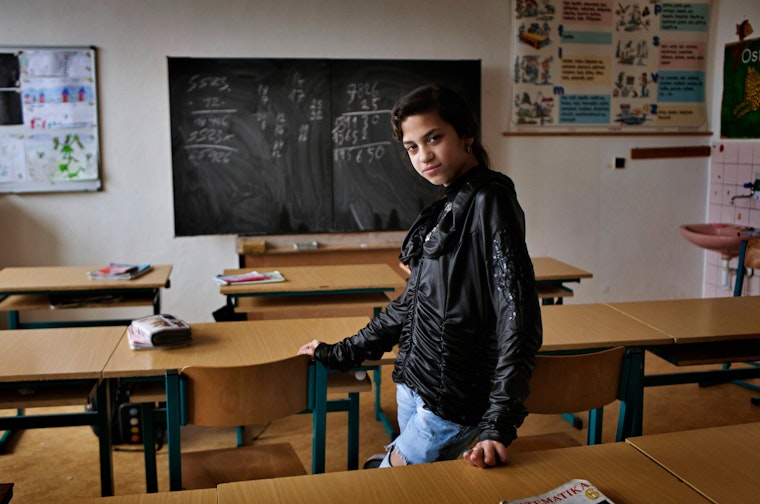
In one of its most-widely cited judgments, DH v. Czech Republic, the Grand Chamber of the European Court of Human Rights ruled that the pervasive practice of segregating Roma children in substandard primary schools violated the European Convention on Human Rights. The case was brought by the European Roma Rights Centre and the Justice Initiative.
2007: Improving Access to Legal Aid
Moldova approved a new law to guarantee qualified legal aid for all indigent defendants, prompt access to counsel for all detained defendants, and up to one hour of primary legal aid for any person in need of legal advice. The reforms were supported by the Justice Initiative, which for more than a decade was among the prime movers in the restructuring of legal aid in half a dozen countries in Central and Eastern Europe, as well as in Indonesia and Sierra Leone. The Justice Initiative played an important role in drafting and securing adoption in 2012 by the UN General Assembly of the UN Principles and Guidelines on Access to Legal Aid in Criminal Justice Systems.
2007: Monitoring the World’s Most Significant Grave Crimes Trials

The Justice Initiative, which had already been monitoring the Extraordinary Chambers in the Courts of Cambodia, launched a website to follow the trial of former Liberian president Charles Taylor, after the Special Court for Sierra Leone shifted the trial venue from Sierra Leone to The Hague, far from West African audiences. This website became the model for International Justice Monitor, a 14-year project that relayed information on over a dozen International Criminal Court and domestic grave crimes trials.
2009: Prompting UN Committee to Condemn Racial Profiling and Discriminatory Police Stops

In response to a complaint filed by the Justice Initiative and Women’s Link Worldwide, the United Nations Human Rights Committee, in Rosalind Williams v. Spain, for the first time declared that police identity checks motivated by race or ethnicity breach the international human right to nondiscrimination. The Justice Initiative’s continued work with monitoring bodies helped lead to further new standards, including a general policy recommendation by the European Commission against Racism and Intolerance in 2007 on the need to prohibit racial profiling and the Council of Europe Parliamentary Assembly’s 2021 resolution condemning ethnic profiling as discriminatory and illegal.
2011: Addressing Sexual and Gender-Based Violence in Conflict
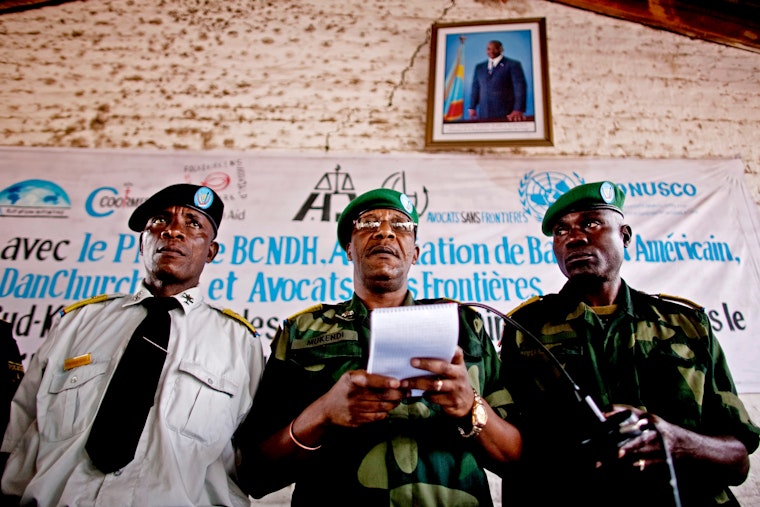
In response to an ongoing epidemic of rape and gender violence in the eastern provinces of the Democratic Republic of the Congo, the Justice Initiative provided legal support over several years for the creation of mobile gender justice courts. In 2011, one such court sentenced a lieutenant colonel in the DRC army to 20 years in prison for ordering a mass rape in the village of Fizi, and also tried and convicted three of his officers.
2011: Launching Latin America’s First Pretrial Service Agency
In cooperation with the government of Mexico’s Morelos state, the Justice Initiative supported the establishment of an official body to screen criminal defendants for supervised pretrial release. Success in providing an alternative to widely overused pretrial detention led to the adoption of the model on a national level in 2016.
2012: Winning Redress for Police Torture and Deaths in Custody in Central Asia
The UN Committee against Torture concluded that Kazakhstan failed to properly investigate, protect against, or provide adequate reparation for the police torture of a victim represented by the Justice Initiative. A series of subsequent decisions by the CAT and the UN Human Rights Committee in cases of police abuse brought by the Justice Initiative, followed by domestic litigation, led courts in Kazakhstan and Kyrgyzstan to hold that international treaties ratified by these countries have priority over national legislation and that decisions of the UN treaty bodies must be implemented.
2013: Supporting Justice for One of Central America’s Most Murderous Generals
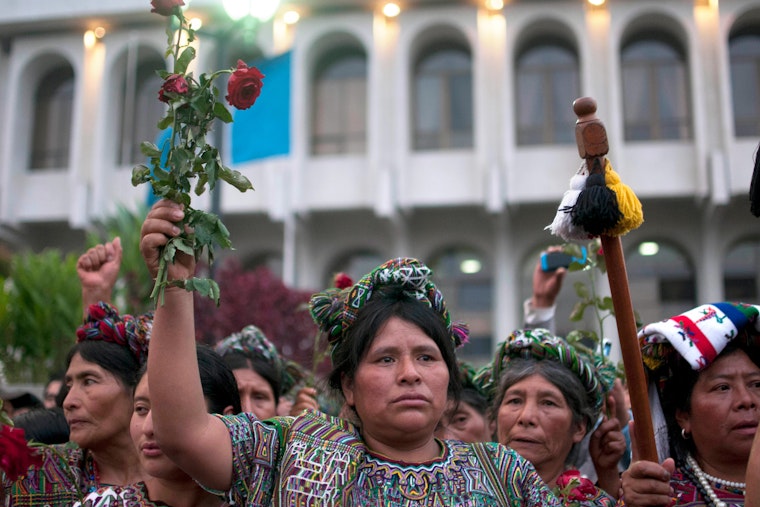
Following death threats against prosecutors and others in Guatemala, the Justice Initiative launched a trial monitoring website to focus international attention on the trial of General Efraín Ríos Montt, Guatemala’s former military dictator. Ríos Montt’s conviction, though overturned under enormous political pressure, marked the first time a domestic court anywhere had found a former head of state guilty of genocide.
2013: Creating the “Tshwane Principles” to Guarantee Freedom of Information
More than two years of consultations between the Justice Initiative and governments, former security officials, civil society groups, and academics from around the world resulted in the unveiling of the new Tshwane Principles on National Security and the Right to Information. The global principles offer a new set of guidelines that address the balance between state secrecy and the public’s right to know in unprecedented detail. The principles provide an international template to ensure public access to government information without jeopardizing legitimate efforts against national security threats. The creation of the principles was the result of a series of cases supported by the Justice Initiative to define and expand the right to information at the Inter-American Court of Human Rights (Claude Reyes v. Chile, 2006) and the European Court of Human Rights (HCLU v. Hungary, 2009), as well as in national courts in Chile, Paraguay and Peru. The principles were also reflected in laws and legislation such as the OAS Model Law on Access to Information (2010); and the adoption of freedom of information legislation in more than a dozen countries in Africa.
2014: Confronting a Legacy of CIA Torture
In response to litigation brought by the Justice Initiative, the European Court of Human Rights became the first court to publicly confirm the existence of so-called “black site” secret prisons operated by the CIA in Europe after the September 11, 2001, attacks on the United States. The ruling focused on the role of Poland; a similar ruling against Romania followed in 2018. In a prior 2010 Justice Initiative case on behalf of Khaled El Masri, the court found that European state complicity in CIA practices of torture, forced disappearance, and extraordinary rendition violated European law.
2015: Including Access to Justice in Sustainable Development Goals
Capping a multiyear campaign by the Justice Initiative in partnership with other civil society and donor actors, UN member states adopted the 2030 Agenda for Sustainable Development, including 17 Sustainable Development Goals, one of which explicitly pledged to provide access to justice for all. In 2020, following advocacy by the Justice Initiative and others, the UN Statistical Commission gave substance to the Sustainable Development Goals target on access to justice by approving establishment of a civil justice indicator to measure its implementation.
2015: Prompting European Union’s Highest Court to Outlaw Race Discrimination
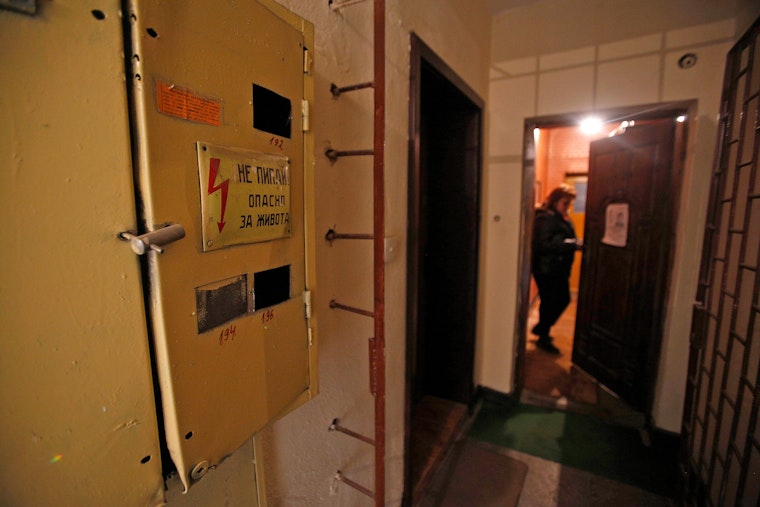
In its first decision on anti-Roma discrimination (CHEZ Razpredelenie Bulgaria AD v. Komisia za zashtita ot diskriminatsia), the Court of Justice of the European Union ruled that a Bulgarian electricity company breached EU law by concentrating “offensive and stigmatizing” practices only in districts where most residents were Roma. In representing one of the petitioners, the Justice Initiative helped vindicate the principle that equality law protects not only members of a victimized racial or ethnic group, but all persons affected by discriminatory practices.
2015–2016: Strengthening the International Criminal Court
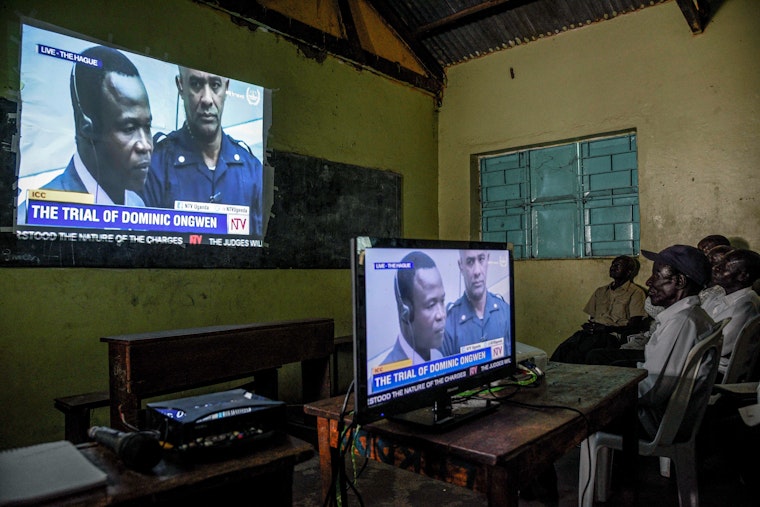
With the Justice Initiative’s assistance, the International Criminal Court published its first two reports on indicators to track the efficiency of its proceedings, protecting victims’ security, accessibility to the court, and other aspects of its work. For over a decade, the Justice Initiative collaborated with the International Criminal Court judges and the Office of the Prosecutor and Registry in addressing issues that spanned prosecutorial strategy, witness protection, and public communications. The Justice Initiative researched and produced a series of recommendations on revamping International Criminal Court judicial elections to make them more transparent, effective, and merit-based, and to introduce a vetting system for elected officials, all of which led to significant reforms.
2017: Obtaining First European Court of Human Rights Ruling on Exploitation of Irregular Migrant Workers
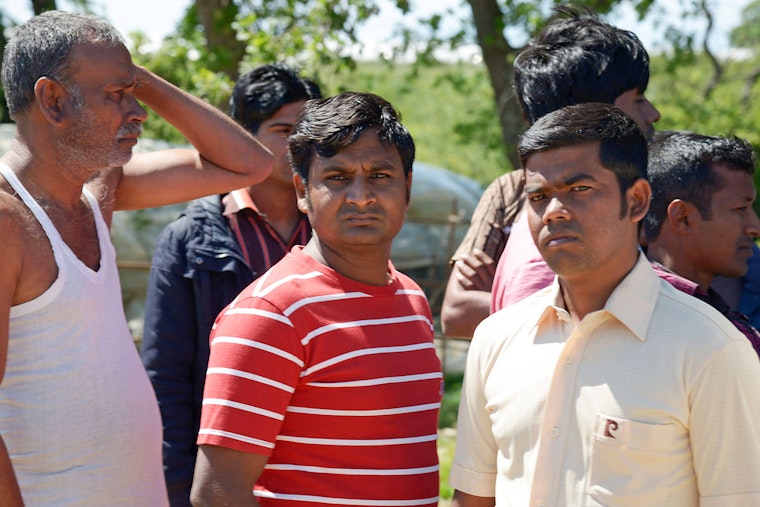
In a case brought by the Justice Initiative on behalf of 42 Bangladeshi agricultural workers in Greece, the European Court of Human Rights found that claimants had been victims of forced labor. It ordered payment of almost 600,000 euros in compensation for mistreatment, including injuries resulting from shooting by armed guards.
2017: Helping Secure Land Rights for Kenya’s Nubian Minority

Marking a historic victory in a long struggle to end patterns of entrenched discrimination, Kenya’s president acknowledged the land rights of the country’s Nubian minority and granted a communal land title for 288 acres in the Nairobi community of Kibera. This step was precipitated by legal complaints filed together with Nubian leaders by the Justice Initiative and its partners.It resulted in pathbreaking rulings on rights to citizenship, birth registration, and documentation by both the African Commission of Human and Peoples’ Rights and the African Committee of Experts on the Rights and Welfare of the Child.
2019: Holding Russia Accountable for Violating Whistleblower’s Rights
Ten years after the death of Sergei Magnitsky, who died in jail in 2009 after alleging fraud by Russian tax officials, the European Court of Human Rights unanimously held that Russia was responsible for Magnitsky’s death and had subjected him to “intentional” acts of violence “that amounted to inhuman and degrading treatment.” Magnitsky’s mother and widow were represented by the Justice Initiative.
2019: Using Freedom of Information Act to Draw Attention to Khashoggi Murder Case
The Justice Initiative filed a lawsuit under the U.S. Freedom of Information Act seeking the immediate release of government records relating to Saudi Arabia’s killing of Washington Post columnist Jamal Khashoggi. Two years later, the Biden administration released an unclassified intelligence report about his murder, providing official confirmation that the Saudi Crown Prince Mohammed bin Salman was responsible.
2021: Achieving Victory Against Biometric ID Cards in Kenya

The High Court in Kenya released a judgment declaring the data collection and rollout of biometric Huduma cards for the country’s digital ID, or National Integrated Identity Management System, unconstitutional due to privacy concerns and potential discrimination against excluded groups. The Justice Initiative was part of a legal team that brought a case forward challenging the digital ID system.
2021: Prompting UN Committee to Issue First Ruling on the Right to a Nationality
In a case filed by the Justice Initiative and the International Commission of Jurists, the UN Human Rights Committee issued its first ruling on the right to nationality in the International Covenant on Civil and Political Rights. The committee found that the Netherlands violated the rights of a child by assigning him the status of “unknown” nationality, creating a precedent for many other jurisdictions lacking crucial protections for children who are stateless or at risk of statelessness.
2022: Seeking Justice for Grave Crimes in Syria

In a landmark trial, a German court handed down the first-ever verdict concerning the systematic torture of detainees by the government of President Bashar al-Assad, against a high-ranking colonel who oversaw a notorious prison in Damascus. The Justice Initiative represented five victims in the case.
